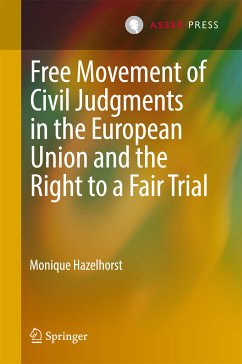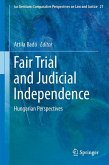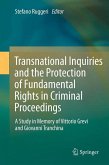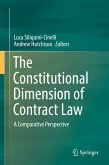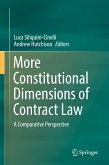The text uniquely combines a thorough discussion of EU legislation with an in-depth and critical examination of its interplay with fundamental rights. It contains an over-view and comparison of both ECtHR and CJEU case law on the right to a fair trial, andprovides a great number of specific recommendations for current and future legislation.
With its critical discussion of EU Regulations from both a practical and a theoretical standpoint, this book is particularly relevant to legislators and policymakers working in this field. Because of the extensive overview of the functioning of the EU's mechanisms and of relevant case law it provides, the book is also highly relevant to academics and practitioners.
Monique Hazelhorst is Judicial Assistant at the Supreme Court of the Netherlands. She studied Law and Legal Research at Utrecht University and holds a Ph.D. in Law from the Erasmus School of Law at Erasmus University Rotterdam.
Dieser Download kann aus rechtlichen Gründen nur mit Rechnungsadresse in A, B, BG, CY, CZ, D, DK, EW, E, FIN, F, GR, HR, H, IRL, I, LT, L, LR, M, NL, PL, P, R, S, SLO, SK ausgeliefert werden.

